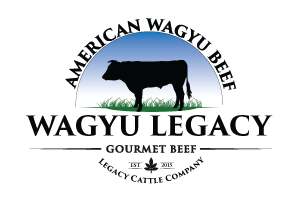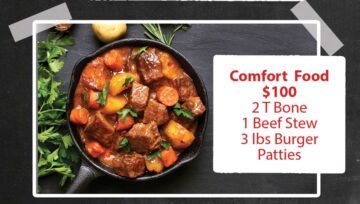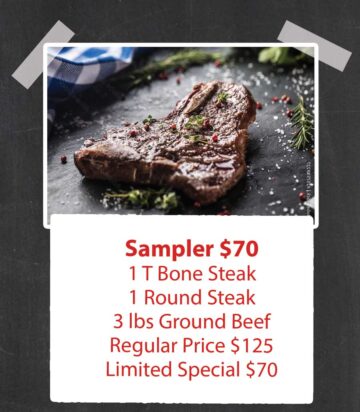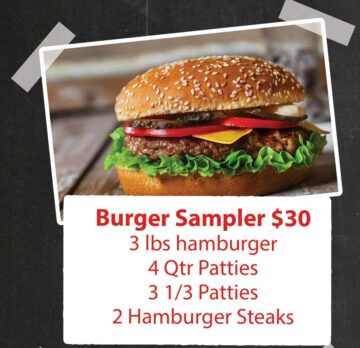Your American Wagyu Beef Source
Local to middle Tennessee, we raise free-range, hormone-free, organically-fed American Wagyu cattle. Our American Wagyu beef is known for its distinct marbling, unsaturated fat, lower cholesterol, buttery tenderness, and juicy characteristics.
The Legacy Cattle Company
Our ranch has been producing American Wagyu beef since 2015. We are trusted by many clients from all over the country as their premium Wagyu beef supplier.
Our cuts have been USDA inspected & approved. Our American Wagyu beef is professionally cut and shipped in air-tight, temperature-controlled packaging.
From Farm to Table: The Fascinating Journey of Wagyu Beef
Indulge your senses as we take you on an extraordinary culinary adventure through the captivating journey of Wagyu beef. This exceptional breed, known for its exquisite marbling and melt-in-your-mouth tenderness, has captured the hearts of steak aficionados worldwide. But what sets Wagyu apart from other beef?
At the heart of the Wagyu experience lies the meticulous rearing of these magnificent animals. Raised with utmost care and devotion, Wagyu cattle enjoy a pampered life on pristine farms, benefiting from a specially formulated diet and a stress-free environment. The result? Unprecedented flavor and an unmatched level of succulence.
Once the time comes for harvest, the art of butchering takes center stage. Every cut is expertly crafted to maximize flavor and deliver an unrivaled dining experience. The tender, buttery texture and rich umami taste of Wagyu beef are a testament to the craftsmanship and dedication of the farmers and butchers involved in its production.
So join us as we navigate the remarkable journey of Wagyu beef, from farm to table, and discover why this extraordinary meat has earned its place at the pinnacle of gourmet cuisine.
Introducing Wagyu beef: A brief history and origins
Wagyu beef, originating in Japan, has a rich history dating back centuries. The term “Wagyu” translates to “Japanese cow,” the breed is believed to have been developed in the Kobe region during the second century AD. Initially used as working cattle, Wagyu gradually gained popularity for its superior meat quality.
How Wagyu came to America
Wagyu breeding in America is relatively new. It began initially when four Wagyu bulls were imported from Japan to the U.S. in 1976. They were bred with the American Angus and Continental breeds. Since then, implantation has enabled 100% Wagyu cattle breeding within the United States.
The rearing process: From calf to fully grown Wagyu cattle
Raising Wagyu cattle requires a unique approach emphasizing their well-being and overall health. The journey begins with the birth of the calves, where they are carefully nurtured in a controlled environment. The calves receive individual attention, ensuring their nutritional needs are met while minimizing stress.
As the calves grow, they transition to pasture grazing, where they have ample space to roam and graze on nutrient-rich grass. This stage allows the cattle to develop the distinct flavor profile that sets Wagyu apart. Farmers closely monitor their growth, providing a balanced diet and ensuring access to clean water.
The unique feeding regimen: Grain vs. grass-fed Wagyu
One of the defining characteristics of Wagyu beef is its exceptional marbling, which contributes to its tenderness and flavor. While grain-fed and grass-fed Wagyu exist, most Wagyu cattle are finished on a diet of grain, typically a blend of corn, barley, and other grains. This intensive feeding regimen, often referred to as “finishing,” takes place in the months leading up to harvest, and it is during this period that the marbling intensifies, resulting in the buttery texture and rich taste Wagyu is renowned for.
The art of marbling: Understanding the grading system
The quality of Wagyu is determined by its marbling, which refers to the distribution of intramuscular fat within the meat. The more marbling present, the higher the grade and the more desirable the meat. The grading system for Wagyu varies between countries, but it generally ranges from 1 to 12, with 12 being the highest grade. A high-grade Wagyu steak boasts abundant marbling, creating a luxurious and indulgent dining experience.
The role of genetics in producing high-quality Wagyu beef
Genetics plays a crucial role in the production of high-quality Wagyu. Breeding programs carefully select bulls and cows with desirable traits like marbling, tenderness, and overall meat quality. Through advanced genetic testing and selective breeding, ranchers aim to continuously improve the characteristics of Wagyu cattle, ensuring a consistently exceptional product.
Farming practices and animal welfare in Wagyu beef production
The ranching practices employed in Wagyu beef production prioritize the well-being and comfort of the animals. The Legacy Cattle Company is dedicated to raising Wagyu cattle by providing spacious pastures for grazing, ensuring ample exercise and access to fresh air. Additionally, using low-stress handling techniques minimizes any potential discomfort to the cattle. These practices contribute to the superior taste of Wagyu beef and align with ethical and sustainable farming principles.
The journey to the table: Processing, packaging, and distribution
Once the cattle have reached the ideal maturity, they are transported to specialized processing facilities. Here, skilled butchers meticulously preserve the integrity of each cut. The different cuts of Wagyu beef, such as ribeye, sirloin, and tenderloin, are packaged and prepared for distribution to restaurants, specialty retailers, and local consumers. The final stage of the journey ensures that the exceptional quality and taste of Wagyu beef are maintained until it reaches your plate.
Cuts and cooking techniques for Wagyu beef
The versatility of Wagyu beef allows for a wide range of culinary possibilities. Each cut offers its unique characteristics and flavors. Popular cuts include the ribeye, renowned for its marbling and tenderness, and the tenderloin, prized for its melt-in-your-mouth texture. Cooking Wagyu beef requires attention to detail, as the high-fat content necessitates careful handling to achieve the desired results. Whether you grill, pan-sear, or sous vide your Wagyu steak, the result will undoubtedly be a culinary experience.
Recommended restaurants and recipes for Wagyu
To truly appreciate the extraordinary taste of Wagyu beef, dining at a reputable restaurant is a must. Many fine dining establishments offer Wagyu on their menus, allowing them to savor this delicacy prepared by skilled chefs. For those who prefer to try their hand at cooking, numerous recipes showcase the versatility of Wagyu beef, from classic steak preparations to innovative dishes that highlight its unique flavors.
One of our favorite cooking techniques is using a heavy iron pan. Carmelize onions, peppers, and seasoning in butter. Add the Wagyu steak and cook.
The journey of Wagyu beef from farm to table is special. From the careful rearing and feeding of the cattle to the expert butchering and distribution, every step is executed with precision and passion. The result is an unparalleled dining experience that combines exceptional flavor, tenderness, and marbling. Whether you’re a steak connoisseur or simply curious about Wagyu, we hope you enjoy your American Wagyu beef from our ranch to your table.





